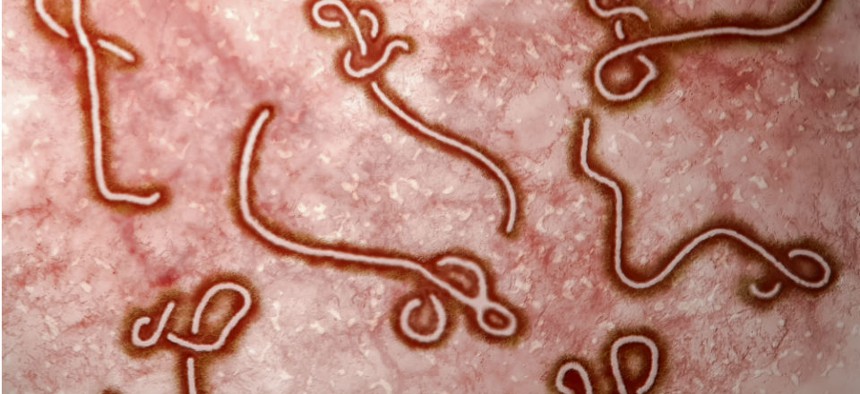
Nixx Photography / Shutterstock.com
Agencies Do Not Have to Grant Special Paid Leave to Feds Exposed to Ebola
OPM, however, recommends they provide civilian workers quarantined because of their job some excused absence.
Agencies should grant “excused absence” to asymptomatic, quarantined federal employees exposed to Ebola because of their work, the Office of Personnel Management has recommended. But they don’t actually have to do that, and can put certain limitations around that type of leave if they do.
That’s the latest guidance from the federal government on dealing with fallout from potential exposure to the deadly virus, which has killed thousands in West Africa. Six Americans have contracted Ebola and were treated here – all of them have recovered. Two people, Liberian Thomas Eric Duncan, and Dr. Martin Salia, a legal permanent resident in the United States working in his native Sierra Leone, contracted the disease abroad and died in the United States this fall.
While the Nov. 25 OPM memorandum instructs agencies and federal workers to follow guidelines from the Centers for Disease Control and Prevention and the Occupational Safety and Health Administration when it comes to preventing the spread of Ebola, it details how exposure to the virus – and other viruses, like the seasonal flu – affect leave. And, as you might have guessed, it’s complicated.
Excused absence status, which is rare in the federal government, means that agencies can give employees paid leave under certain circumstances without charging employees’ individual sick and annual leave banks. Because of the “special circumstances” surrounding the current Ebola outbreak in West Africa, OPM believes it is “appropriate” for agencies to provide some excused absence to a quarantined employee if the potential exposure resulted from a work assignment, the Nov. 25 guidance stated. The mandatory quarantine period for people exposed to Ebola is 21 days, so if agencies chose to, they could grant those affected employees excused absence for that time.
But agencies have broad discretion when it comes to granting such leave. “The agency authority to provide excused absence is discretionary,” said the OPM guidance, even under the special circumstance surrounding Ebola. “Thus, an agency may attach conditions to its use. Given that the employees in question may be otherwise healthy and capable of working but for the quarantine, an agency may request that a quarantined employee who is able to work at least part of the time, enter into an ad hoc telework arrangement to perform work as practicable as a condition of being granted excused absence for the balance of the quarantine period.”
So just because you’re under quarantine, it doesn’t necessarily mean 21 days of “vacation.” However, “an employee with confirmed Ebola will be isolated in a hospital and receive medical care and will not report to work.” Those feds exposed to Ebola directly as a result of their job could be eligible for workers’ compensation benefits, according to the guidance.
The memo notes that outside of the special circumstances regarding Ebola, typical sick leave regulations apply regarding other “quarantinable communicable diseases” and excused absence is “generally used as a last resort when other personnel tools are not sufficient or appropriate.” In other words, it’s pretty hard for an employee to receive an excused absence.
OPM’s latest guidance includes information on leave policies, sick leave when caring for an ill family member, as well as telework and alternative work schedules under such circumstances -- be they quarantinable communicable diseases or seasonal flu.
The memorandum from OPM Director Katherine Archuleta applies to civilian employees in the federal government. “It does not apply to members of the military or uniformed personnel in the commissioned corps of the Public Health Service,” the guidance stated. “Military personnel are subject to policies issued by the Department of Defense. Public Health Service commissioned corps officers are subject to policies issued by the Department of Health and Human Services.”
(Image via Nixx Photography / Shutterstock.com)
NEXT STORY: Your Open Season Questions, Answered.







